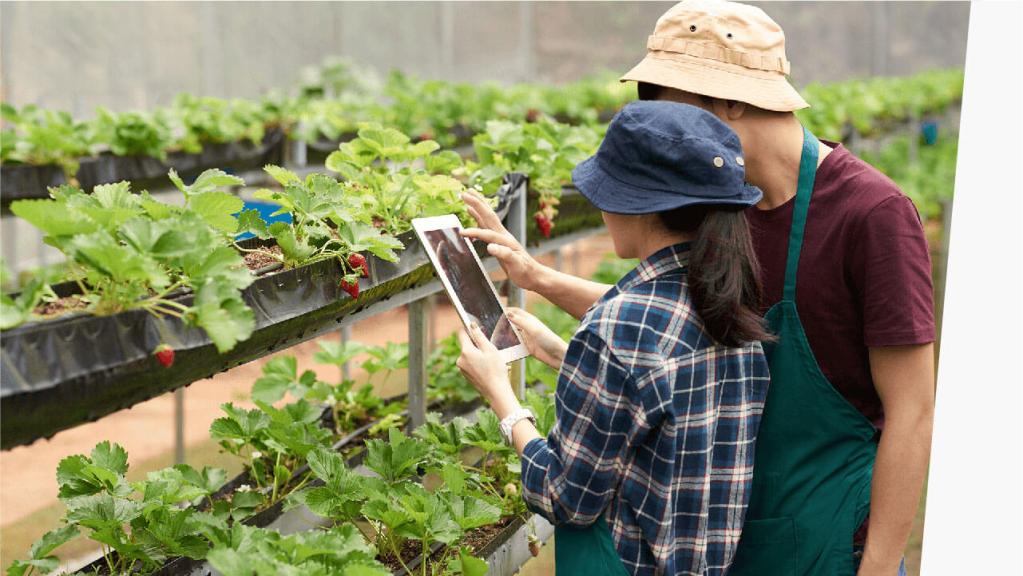Are you a distributor in the fresh produce industry? Technology can make or break your business, so it pays to stay on top of emerging trends and innovations. By taking advantage of the rapidly evolving tech landscape, you may be able to improve your inventory management process, customer service efforts, communications strategy—and more.
In this blog post, we’ll explore new technologies that fresh produce distributors should consider implementing into their operations.
If you’re a wholesale distributor looking for a solution to improve your operations, consider https://usesilo.com/solutions/wholesale-distributors. With Silo, you can boost your cash flow by streamlining all elements of your business, from accounting to inventory management to payments.
1. Automated Packing And Sorting Systems To Speed Up The Distribution Process
Automated packing and sorting systems are becoming increasingly popular among fresh produce distributors, as they can speed up the distribution process significantly. By using automated robots or machines to automatically sort and package items, distributors can save time and money while also improving efficiency.
Automated technologies can help reduce labor costs, minimize product damage, and improve accuracy in order fulfillment. They are also able to accommodate varying product sizes and shapes, making them suitable for any produce distribution operation.
Another advantage of automated packing and sorting systems is the ability to track items throughout the entire process, which can help with inventory control. This ensures that all orders are delivered correctly and on time, leading to improved customer satisfaction levels.
2. GPS Tracking Systems To Monitor The Location Of Produce At All Times
GPS tracking systems monitor the location of goods at all times. This technology uses satellites and cellular networks to track the real-time location of items, making it easier for distributors to stay informed about their inventory levels.
GPS tracking systems also provide visibility into deliveries so that distributors can ensure that their products are delivered on time and to the right destination.
GPS tracking systems help distributors reduce losses due to theft or misplacement of items. This technology creates detailed records of product movement, enabling distributors to track their goods both online and in real-time. It also helps to identify any discrepancies or discrepancies in delivery times, which can help to improve customer service levels.
These systems also allow distributors to proactively monitor their supply chain and make sure that the produce is being handled correctly at all times. This helps to prevent spoilage and reduces waste due to improper handling of goods.
GPS tracking systems provide fresh produce distributors with a better understanding of their inventory levels and delivery processes, enabling them to become more efficient and successful.
3. Cloud-Based Software Platforms That Provide Real-Time Updates On Inventory Levels And Order Status
Cloud-based software platforms provide real-time updates on inventory levels and order status. This technology enables distributors to stay informed about their products at all times, making it easier to manage their operations.
Rather than relying on manual data entry or outdated processes, cloud-based software provides real-time data from each stage of the distribution process. This technology can be used to track order fulfillment and inventory levels, providing distributors with a clear picture of when products are arriving and being shipped out.
Cloud-based software solutions also provide valuable insights into customer service issues, such as late deliveries or incorrect orders. This information can then be used to make adjustments and prevent future problems. Additionally, this technology also helps to streamline operations, as all the necessary data can be accessed in one place.
Fresh produce distributors can use cloud-based software platforms to stay ahead of the competition. This technology provides up-to-date information about inventory levels, order fulfillment, and customer service issues, allowing distributors to provide the best possible products and services.
Ultimately, cloud-based software platforms can help fresh produce distributors become more efficient and successful.
4. Thermal Imaging Sensors To Detect Spoilage Or Defects In Fruits And Vegetables
Thermal imaging sensors are an innovative technology used to detect spoilage or defects in fruits and vegetables. This technology uses thermal cameras to measure the temperature of produce, helping to identify any potential problems at an early stage. Thermal imaging sensors also enable distributors to monitor the quality of their goods, ensuring that only the freshest produce is sent out for delivery.
These sensors are also useful for catching any potential problems before the goods reach their destination. By using thermal imaging technology, distributors can quickly identify any areas that may be prone to food spoilage or defects. This helps to reduce wastage and ensures customers receive the highest quality produce possible.
Thermal imaging sensors provide a more efficient and accurate way of monitoring fresh produce. This technology can help distributors improve their customer service levels by ensuring that only the freshest fruits and vegetables are delivered. Thermal imaging sensors are a valuable tool for fresh produce distributors looking to stay ahead of the competition.
Conclusion
In conclusion, new technologies are revolutionizing the way fresh produce distributors do business. From cloud-based software and GPS tracking systems to thermal imaging sensors, these tools enable distributors to monitor their supply chains more effectively and provide customers with the freshest produce possible.
By utilizing these new technologies, fresh produce distributors can become more efficient and successful.
